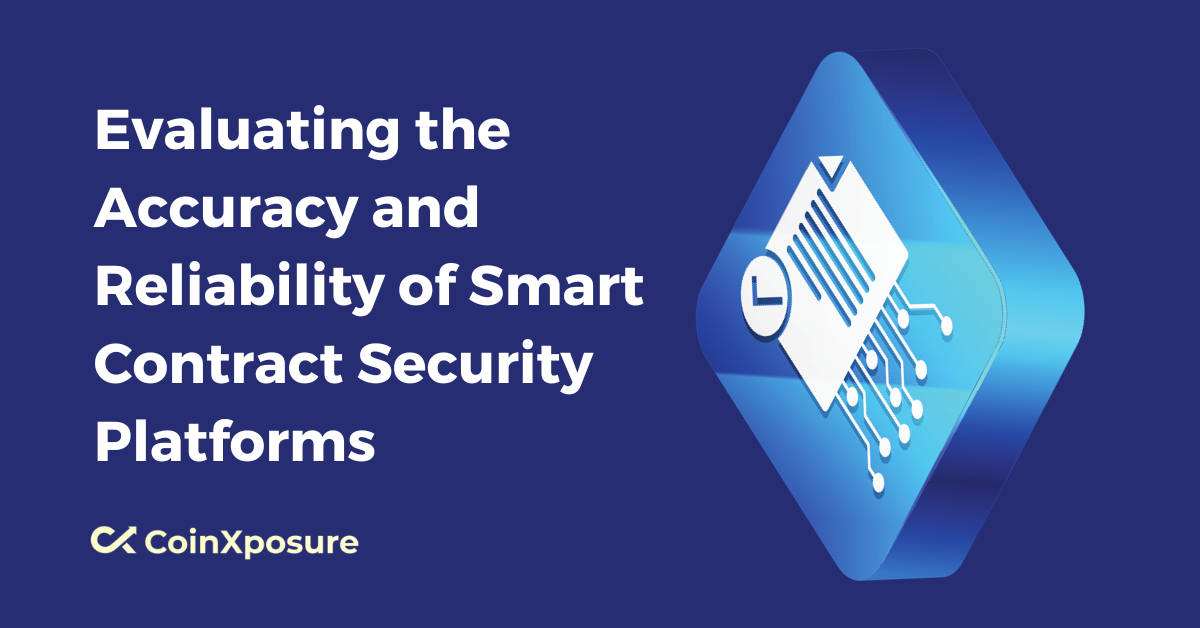
Evaluating the Accuracy and Reliability of Smart Contract Security Platforms
In the rapidly evolving landscape of blockchain technology, smart contracts play a pivotal role in facilitating decentralized and trustless transactions. However, the inherent complexities and vulnerabilities within smart contract code necessitate the existence of robust security platforms.
This article explores the critical task of evaluating the accuracy and reliability of such platforms, delving into key metrics, testing methodologies, continuous monitoring, community involvement, and regulatory compliance.
As the adoption of smart contracts grows, ensuring the resilience of these security platforms becomes imperative for safeguarding the integrity of blockchain-based systems.
Importance of Evaluating Accuracy and Reliability
Evaluating the accuracy and reliability of smart contract security platforms is crucial for several reasons:
- Preventing Exploits
- Protecting Assets
- Maintaining User Confidence
- Legal and Regulatory Compliance
Preventing Exploits
Identifying and mitigating vulnerabilities in smart contracts is essential to prevent malicious exploits ensuring the integrity of decentralized applications and the assets they manage.
Protecting Assets
Smart contracts often handle valuable assets, including cryptocurrencies. Reliable security platforms safeguard these assets from theft, fraud, and unauthorized access, reinforcing trust in decentralized systems.
Maintaining User Confidence
Users and stakeholders need assurance that smart contracts operate securely. Evaluation instills confidence by demonstrating a commitment to robust security practices, thereby fostering wider adoption of blockchain technologies.
Legal and Regulatory Compliance
Regulatory scrutiny in the blockchain space is increasing. Evaluating security platforms against established standards ensures compliance with legal and regulatory frameworks, mitigating legal risks for platform operators and users.
The importance of evaluating accuracy and reliability lies in safeguarding assets, building user trust, complying with regulations, preserving reputation, fostering innovation, and ensuring the resilience of smart contract platforms in the face of evolving security challenges.
Evaluating the Accuracy and Reliability of Smart Contract Security Platforms
Evaluating the accuracy and reliability of smart contract security platforms is critical in ensuring decentralized systems’ robustness. This assessment involves multiple facets to guarantee the secure execution of smart contracts and the protection of associated assets. The evaluation process typically includes the following key aspects:
- Code Analysis
- Vulnerability Detection
- Testing Methodologies
- Continuous Monitoring
- Community and Reputation
- Regulatory Compliance
- Case Studies
Code Analysis
Conducting thorough static analysis to scrutinize the source code for vulnerabilities. Employing dynamic analysis to assess the runtime behavior and execution flow of smart contracts.
Vulnerability Detection
Identifying and addressing common vulnerabilities and exploits, such as reentrancy attacks and known threats. Utilizing effective detection mechanisms, including signature-based approaches and heuristic analysis.
Testing Methodologies
Implementing automated testing tools and frameworks, such as MythX and Securify, to systematically identify vulnerabilities. Incorporating manual code review by experts, following best practices in code auditing to catch nuanced issues.
Continuous Monitoring
Implementing real-time monitoring to analyze event logs and detect anomalies in smart contract behavior. Conducting regular audits and updates to address evolving security threats and maintain the platform’s resilience.
Community and Reputation
Encouraging open source collaboration and community contributions to enhance the platform’s security through peer review. Considering platform reputation, including past incidents, responses, user feedback, and ratings.
Regulatory Compliance
To meet legal and regulatory requirements, align smart contract security practices with established standards and compliance frameworks, such as ISO 27001.
Case Studies
Examining both successful security platforms and instances of failures to distill lessons learned and inform best practices.
By comprehensively evaluating these aspects, stakeholders can gauge the accuracy and reliability of smart contract security platforms, ultimately fortifying the foundation of decentralized applications and fostering trust in the broader blockchain ecosystem.
Emphasizing the Need for Comprehensive Evaluation
The need for a comprehensive evaluation of smart contract security platforms cannot be overstated due to several critical reasons:
- Mitigating Financial Risks
- Ensuring User Trust
- Adapting to Evolving Threats
- Meeting Regulatory Standards
Mitigating Financial Risks
Smart contracts often handle valuable assets, and any vulnerability can lead to financial losses. Comprehensive evaluation helps identify and address potential weaknesses, reducing the risk of exploitation and financial repercussions.
Ensuring User Trust
Users need confidence in the security of decentralized applications. Thorough evaluation assures users that the platform prioritizes security, fostering trust and encouraging broader adoption of blockchain technologies.
Adapting to Evolving Threats
The blockchain landscape is dynamic, with new security threats emerging regularly. A comprehensive evaluation ensures that security platforms are adaptable, capable of evolving to counter new and sophisticated vulnerabilities.
Meeting Regulatory Standards
Regulatory scrutiny in the blockchain space is increasing. Platforms that undergo comprehensive evaluation are better positioned to meet legal and regulatory standards, reducing the risk of legal challenges and ensuring long-term viability.
A comprehensive evaluation is not just a precautionary measure; it is a strategic imperative. It safeguards financial interests, builds user trust, adapts to evolving threats, ensures regulatory compliance, preserves reputation, encourages innovation, and contributes to the overall resilience of the blockchain ecosystem.
Conclusion
The evaluation of smart contract security platforms is a paramount and non-negotiable undertaking in the realm of blockchain technology. As decentralized applications become integral to various industries, the need for a robust, secure foundation becomes increasingly apparent.
The evaluation process is not merely a technical exercise; it is a strategic imperative that aligns with financial prudence, regulatory compliance, user trust, and the ongoing evolution of blockchain technology.
As the blockchain landscape continues to evolve, platforms that prioritize and undergo comprehensive evaluations will be better positioned to navigate challenges and contribute to decentralized systems‘ sustained growth and success.
